Episodes
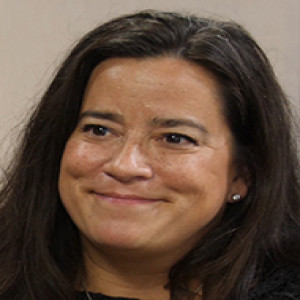
Tuesday Sep 24, 2019
Jody Wilson-Raybould
Tuesday Sep 24, 2019
Tuesday Sep 24, 2019
Ep 260
Guest: Jody Wilson-Raybould
Headline: You’re running as an independent
Beverely McLachlin, who served as Canada’s 17th Chief Justice in an article titled, “The judiciary’s distinctive role in our constitutional democracy,” stated: “It is the rule of law that has traditionally provided the necessary limits on stark majoritarianism. It is the rule of law that ensures that elected representatives do not exceed or abuse their powers. And it is the law that protects minorities and permits the accommodations essential to long-term stability.”
Over the past 8 months, we have witnessed the rule of law come under intense pressure from a Prime Minister who used his majority position and his agents – namely the Clerk of the Privy Council, a man who was the former Deputy Minister of Northern and Indian Affairs to harangue – demote and then expel his Justice Minister from his party because he didn’t like her adherence to the rule of law.
As Jody Wilson-Raybould points out, we must administer the law evenly across all sectors of society. She paid a significant price for standing up for her principles. She is now an independent Member of Parliament who is seeking re-election.
We invited Jody Wilson-Raybould to join us for a Conversation That Matters about her reasons for seeking a second term in Vancouver-Granville, why adherence to the rule of law is fundamentally important in our democracy and I also wanted to talk in depth with her about an issue of great importance to me and to Canada. That is improving our relationship with indigineous people and ensuring they are given the same resources and respect that everyone deserves.
Conversations That Matter is a partner program for the Center for Dialogue at Simon Fraser University. The production of this program is made possible thanks to the support of the following and viewers like you.
To learn more about JWR and her career click here https://vimeo.com/357011279
Please become a Patreon subscriber and support the production of this program, with a $1 pledge https://goo.gl/ypXyDs
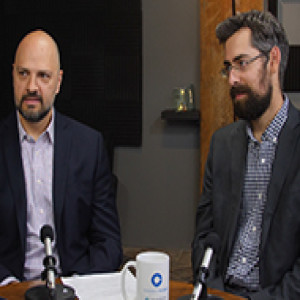
Tuesday Sep 24, 2019
Is Your Cyber Secure?
Tuesday Sep 24, 2019
Tuesday Sep 24, 2019
Ep 259
Guest: Dominic Vogel and Christian Redshaw
Headline: Is Your Cyber, Secure?
It’s easy to gloss over cyber security. In fact, that is what cyber criminals expect. They’re looking for easy targets. While you as an individual may have some passing interest to sophisticated cyber hackers, it's the company you work for that is their target. You might simply be the Rube they use as a conduit to the bigger prize, your employer.
If you read the headlines, you hear about large organizations with complex defenses getting hacked. While those organizations make the headlines, they are not the regular targets of well-organized cyber thieves. The low-hanging fruit to cyber thieves are the millions of small- to mid-sized companies that commit a number of security errors that leave them vulnerable to attacks and ransom.
We invited Dominic Vogel and Christian Redshaw, hosts of the new podcast Cyber Monday, to join us for a Conversation That Matters about keeping your cyber secure.
Conversations That Matter is a partner program for the Center for Dialogue at Simon Fraser University. The production of this program is made possible thanks to the support of the following and viewers like you.
Please become a Patreon subscriber and support the production of this program, with a $1 pledge https://goo.gl/ypXyDs

Thursday Sep 05, 2019
Rob Germain: Saving Local News
Thursday Sep 05, 2019
Thursday Sep 05, 2019
Ep 258
Guest: Rob Germain
Headline: Saving Local News
Ten years ago, the team at CHEK News in Victoria were on the eve of losing their jobs and Vancouver Island was on the cusp of losing its local news station – a station that, when it opened on December 1, 1953, was the first private television station in BC and it had been on the air for more than 50 years.
The station was slated to be the first station to in Canada to go dark. If not for the all-out efforts of the women and men who worked for the station, a vital local news source would have been lost. A station that played a key role in holding politicians accountable, of informing the residents of Vancouver Island about their communities – a station that played a role in the social and economic well-being of Victoria and Vancouver Island – was within hours of vanishing.
We invited Rob Germain of CHEK News to join us for a Conversation That Matters about the all-out effort by the team at the station to keep it on the air.
Conversations That Matter is a partner program for the Center for Dialogue at Simon Fraser University. The production of this program is made possible thanks to the support of the following and viewers like you.
Click here to learn more about Rob and his career https://vimeo.com/356780050
Please become a Patreon subscriber and support the production of this program, with a $1 pledge https://goo.gl/ypXyDs
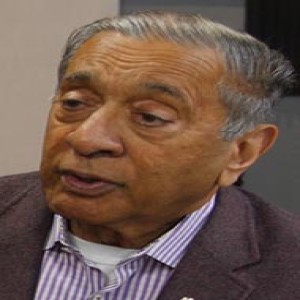
Thursday Aug 29, 2019
Wally Oppal: Policing inthe 21st Centruy
Thursday Aug 29, 2019
Thursday Aug 29, 2019
Ep 257
Guest: Wally Oppal
Headline: Policing in the 21st Century
Today’s police officer is a combination of crime fighter, detective, first responder and social worker who faces a myriad of crimes and criminals that didn’t exist a generation ago. Terrorism and cyber crime are just a few of the new threats to the safety of any community that are on the rise and are extremely challenging to address.
At the same time, as Wally Oppal says, “The public has very high expectations of the police.” Expectations that in most cases Oppal says the police are meeting, “I think, in western democratic societies we probably have the best policing in the world and that is due in large part to the high level of qualifications and training that are needed to be a police officer in Canada.”
What is clear is the web of security forces that are now compelled to work together and coordinate their efforts is expanding. No one security system can meet the needs of society, business and industry and our ever changing requirement to guard against terrorism.
We invited Justice Wally Oppal, the man who is heading up the review on education and training of police officers in BC to join us for a Conversation That Matters about preparing law enforcement officers for their role over the next few decades.
Conversations That Matter is a partner program for the Center for Dialogue at Simon Fraser University. The production of this program is made possible thanks to the support of the following and viewers like you.
To learn more about Wally Oppal’s career visit https://vimeo.com/355197889 Careers That Matter
Please become a Patreon subscriber and support the production of this program, with a $1 pledge https://goo.gl/ypXyDs
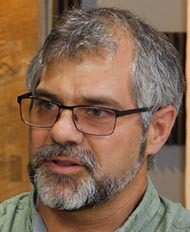
Wednesday Aug 21, 2019
Glyn Williams-Jones: Volcanos in your backyard
Wednesday Aug 21, 2019
Wednesday Aug 21, 2019
Ep 256
Guest: Glyn Williams-Jones
Headline: Volcanos in your backyard
On August 6th, 2010 at just about 3:30 in the morning, the ground in Lil’wat and Pemberton started shaking. People were woken, an emergency call went out and residents were told to – in essence – run. Run as fast and as far as you can because the mountain just over the horizon was crashing down into the valley.
The southern peak of Mount Meager collapsed. That triggered a series of rockfalls that crashed into the weak and heavily saturated south flank on the mountain. The weight of the rocks and the impact destabilized a huge amount of rock, dirt, mud, trees and anything else in its path.
The debris cascaded down seven kilometers of Capricorn Creek and dammed Meager Creek. Over the next 19 hours, water poured into the make-shift dam, creating a lake. The dam didn’t hold and when it let go, the water rushed toward Pemberton faster than you could run.
No one knew it was coming. The Mount Meager slide is comparable in size to the Hope slide and no one knew it was about to happen.
We invited volcanologist Glyn Williams-Jones of SFU’s Earth Sciences Department to join us for a Conversation That Matters about the program he and a complex web of other scientists are putting in place that will be an early warning system when Mount Meager decides to change its shape again.
Conversations That Matter is a partner program for the Center for Dialogue at Simon Fraser University. The production of this program is made possible thanks to the support of the following and viewers like you.
Please become a Patreon subscriber and support the production of this program, with a $1 pledge https://goo.gl/ypXyDs

Wednesday Aug 21, 2019
Ian Tostenson: Why is BC dragging its feet on RideSharing
Wednesday Aug 21, 2019
Wednesday Aug 21, 2019
Ep 255
Guest: Ian Tostenson
Headline: Why is BC dragging its feet on RideSharing
If one of the major objectives of the government is to reduce the number of cars on the road, why is that same government so reluctant to introduce ridesharing? The sharing of 30 trips a day in one vehicle could take 20 cars off the road. Multiple that by hundreds of ridesharing vehicles and the number of cars absent on the motorways becomes significant. Significant enough to make a dent in carbon emissions from automobiles.
According to Ian Tostenson, of RideShare Now, “What’s behind this is unbelievable politics that rests in the heart of Surrey because that’s primarily where the influence of the taxi industry is and both the parties (NDP and Liberal) have been very concerned, especially since the last election where the NDP picked up some seats in Surrey.”
Recently the provincial government did relent to an introduction of ridesharing, with caveats that proponents of the system say will slow down the implementation and severely restrict the number of drivers offering the service.
We invited Ian Tostenson of RideSharing Now to join us for a Conversation That Matters about the myriad and confusing reasons why British Columbia is dragging its feet and standing in the way of ridesharing.
Conversations That Matter is a partner program for the Center for Dialogue at Simon Fraser University. The production of this program is made possible thanks to the support of the following and viewers like you.
Please become a Patreon subscriber and support the production of this program, with a $1 pledge https://goo.gl/ypXyDs
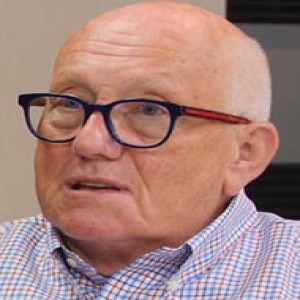
Wednesday Aug 21, 2019
Raymond Greenwood: Celebration of Light, Celebration of Community
Wednesday Aug 21, 2019
Wednesday Aug 21, 2019
Ep 254
Guest: Raymond Greenwood
Headline: Celebration of Light, Celebration of Community
As they have every summer for the past 29 years, the skies over English Bay played host to an enormous public spectacle. That was the scene from the water under the fireworks on July 27, 2019.
In an era when so many people have their faces buried in their phones, I am left wondering why so many people turn out to watch explosives go boom in the night sky. Does the Celebration of Light represent an element in modern society we are all crave? That’s what Ray Greenwood thinks when he says, “We want to be a part of the community; it’s been that way since the very first night.”
It’s an interesting observation, one that is both local and global. Fireworks shows have attracted large audiences for longer than mobile devices have been ubiquitous. But why, in a digital world, are the audience numbers growing?
Could it be that we yearn to rub shoulders with others? Feel the swell of emotion that a crowd of people creates? Do the fireworks force us to interact with one another? Do they create a focal point, a shared experience?
We invited Raymond Greenwood, the man who got the whole thing started, to join us for a Conversation That Matters about major city events, why they’re good for the community and how to make them happen.
Conversations That Matter is a partner program for the Center for Dialogue at Simon Fraser University. The production of this program is made possible thanks to the support of the following and viewers like you.
Please become a Patreon subscriber and support the production of this program, with a $1 pledge https://goo.gl/ypXyDs

Monday Aug 05, 2019
John MacLachlan Gray: White Angel
Monday Aug 05, 2019
Monday Aug 05, 2019
Ep 253
Guest: John MacLachlan Gray
Headline: White Angel - Vancouver’s Oldest Cold Case
Vancouver in 2019 is regularly ranked as one of the top cities to live in globally. But it wasn’t always that way. Go back 95 years to when author John MacLachlan Gray says, “Vancouver was a dirty, smelly, corrupt hell hole” – a place that played host to what is the oldest cold case in the city’s history.
In White Angel, MacLachlan Gray takes us inside the seamy underbelly of the city: not just the skids, but the entire city. He introduces us to a police department that was less than professional, high society that was scandalous, adulterous and outright corrupt. The city across all socioeconomic levels was blatantly racist – racist to everyone and to the Chinese in particular.
White Angel is the story of the murder of a Scottish nanny in a Shaughnessy mansion, it is a story of lies, orgies, alcohol, drug abuse and police corruption. It is centred around the murder by gunshot of Janet Stewart and subsequent ham-handed police investigation and cover-up. As Gray points out, “The city is buzzing with rumors” and the story spins out of control as the powerful United Council of Scottish Societies demands an inquiry. The murder victim’s fellow nannies have accused the Chinese houseboy of the murder and the newly established Ku Klux Klan, which took up residency in Shaughnessy, picks up the cause by abducting the poor young man and attempts to beat a confession out of him.
The poor houseboy escapes the custody of the KKK only to be arrested by the police who promptly charge him with murder. It is a case that is beautifully told by one of Vancouver’s most colourful playwrights and authors.
Throw in an undertaker who alerts a failed poet turned journalist about Janet Stewart’s death and subsequent cover-up and the story becomes so real your senses come alive. As Gray points out, “The killing created a situation analogous to lifting a large flat rock to expose the creatures hiding underneath” and those creatures represented a holy inglorious and unglamourous city.
As you turn the pages you can’t help but ask yourself: what happened to Vancouver? How did we go from a lawless city with a thriving criminal class to the city of today? It’s a dramatic transformation.
We invited John MacLachlan Gray to join us for a Conversation That Matters about how the cold case of the Scottish nanny epitomizes Vancouver in its 1924 opium-hazed, smoke-choked and rain soaked uglier days.
Conversations That Matter is a partner program for the Center for Dialogue at Simon Fraser University. The production of this program is made possible thanks to the support of the following and viewers like you.
Please become a Patreon subscriber and support the production of this program, with a $1 pledge https://goo.gl/ypXyDs
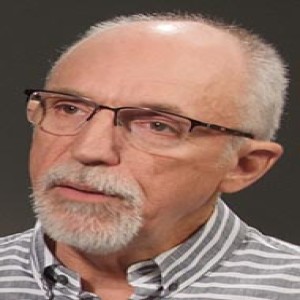
Thursday Jul 25, 2019
BC Mitchell: Obliteration - When Cultures Collide
Thursday Jul 25, 2019
Thursday Jul 25, 2019
Ep 252
Guest: BC Mitchell
Headline: Obliteration - When Cultures Collide
The harsh reality of life in most of the 600 plus First Nations communities is Canada is not what we see in tourist brochures or in the colourful costumes that performers wear at ceremonial events. What we frequently see at big city events like conventions and political press conferences is a white-washed image of what we want aboriginal culture to look like.
Elders, dancers, drummers and singers show up all dressed up playing their part blessing this event or that one. The organizers come on stage and dutifully acknowledge they are on indigenous land. Many use the phrase “on the unceded territory,” unaware that means the owners of the land never agreed to hand over control to the invading colonialists.
BC Mitchell, a former reporter who went on to become the communications manager for the BC Treaty Commision for 15 years, witnessed the reality of life for the women, children and men who live in the forgotten corners of their traditional territories.
That is not to say, all hope is lost. In fact, BC Mitchell is optimistic the relationship between indigenous people and Canada is improving. While he’s hopeful, he’s not blind. In “Obliteration,” he takes the reader into a small Northern Ontario community and showcases ignorance, racism and violence through the eyes of a dysfunctional teen living in a dysfunctional town.
The picture is bleak. The protagonist in Obliteration is a young Caucasian Canadian living on one side of the highway in a fictional town that keeps the Indians over there and the rest of its residents on the other side of hell. Life is not good for anyone.
From the outside, life in remote rural mixed cultural communities simply looks horrible – the kind of town you race past in your car. BC Mitchell takes us inside that world, showcases it for what it is and introduces the reader to people who have names, souls and the scars acquired from a lifetime of tragedy.
This is a book I could not put down. I have been to many First Nations communities and seen first hand the horrid living conditions. I also marvel at our ability as Canadians to dismiss what Martin Luther King described as “islands of poverty in a vast ocean of prosperity.” How is that we rush to the aid of people halfway around the world, yet ignore the need in our own country?
We sat down with author BC Mitchell for a Conversation That Matters about his book “Obliteration” and the long slow process of healing the relationship between indigenous people and those who came and took their land.
I also encourage you to view the Conversation I had with Senator Murray Sinclair on Reconciliation, where to from here. https://vimeo.com/336860259
Conversations That Matter is a partner program for the Center for Dialogue at Simon Fraser University. The production of this program is made possible thanks to the support of the following and viewers like you.
Please become a Patreon subscriber and support the production of this program, with a $1 pledge https://goo.gl/ypXyDs
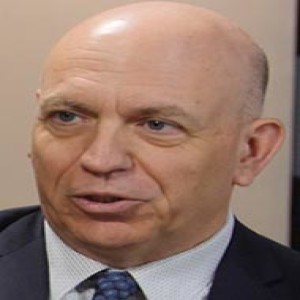
Thursday Jul 18, 2019
Charles Gauthier - Downtown by the Numbers
Thursday Jul 18, 2019
Thursday Jul 18, 2019
Ep 251
Guest: Charles Gauthier
Headline: Downtown Vancouver by the Numbers
If you were under the impression that downtown Vancouver was thriving, you were right. In fact, it’s booming. Tech giants are descending on the city, tourism numbers continue to climb, office and retail construction goes on unabated and more and more people are calling it home.
The downtown is just shy of four square kilometers and comprises a 90 block area. It accounts for just 10% of the city’s population, but it’s home to more than 35 percent of the jobs that exist within the more than 8,000 registered companies it houses.
Over the last decade, the downtown population has grown three times faster than the rest of the city and the backgrounds of residents are diverse. The majority of whom, about 90%, are either of European or Asian ancestries and the rest represent the world. The average age of residents is 37 years and the average household income is $66,000.
Finance, science, tech, hospitality, insurance and retail make up much of the top industry sectors which collectively employ 135,000 people. And when it comes to starting a new company, especially a clean tech enterprise, well, Vancouver is an exceptional incubator for start-ups – it’s ranked number two in Canada.
So what makes for a great downtown? Transit, services, open spaces, entertainment and safety all play important roles, each of which Vancouver ranks at or near the top of the list. Transit is a big issue. When it comes to getting around downtown, buses and SkyTrain are good at getting people in and out of the core – once in the heart of the city, walking and cycling become attractive and efficient options.
A couple of other interesting transportation facts about Vancouver are related to ride hailing and ride sharing. First, we are the largest North American city without Uber or Lyft. That fact may have influenced the fact that we are the number one car-sharing centre in North America. And we’re right up there when it comes to bicycle sharing where, last year, close to half a million shared bike trips were taken.
And also on the list is homelessness. Vancouver is no different than other major cities where people who can not afford a place to live end up on the street. The City of Vancouver continues to develop services and housing options to address the needs of people who call the street home and more needs to be done.
We invited Charles Gauthier of the Downtown Vancouver Business Improvement Association to join us for a Conversation That Matters on the state of downtown and what it says about the model the city is setting for liveability in an urbanized world.
I also encourage you to view the Conversation I had with Charles Gauthier three years ago about re-envisioning the city. You can find that conversation here https://www.youtube.com/watch?v=qYdY6meNUnA&t=222s
Conversations That Matter is a partner program for the Center for Dialogue at Simon Fraser University. The production of this program is made possible thanks to the support of the following and viewers like you.
Please become a Patreon subscriber and support the production of this program, with a $1 pledge https://goo.gl/ypXyDs

